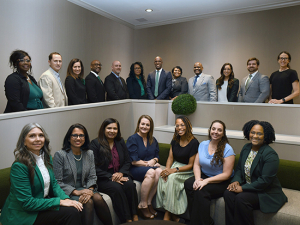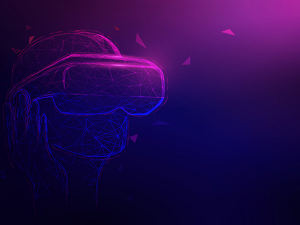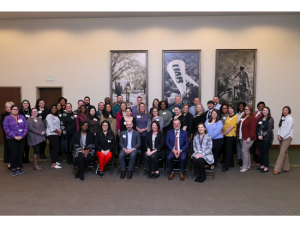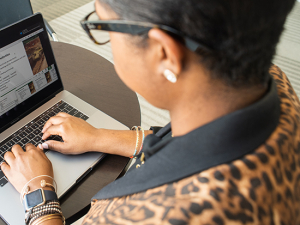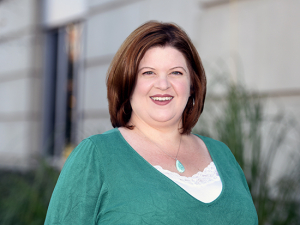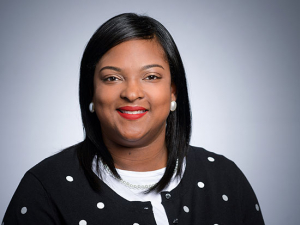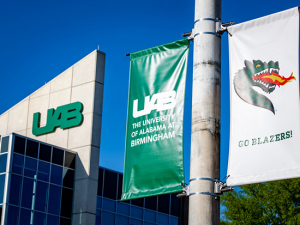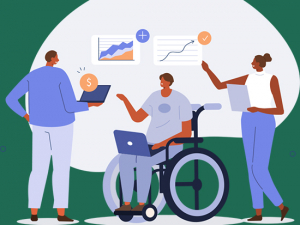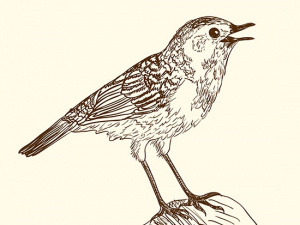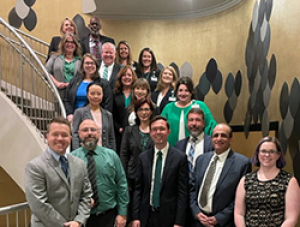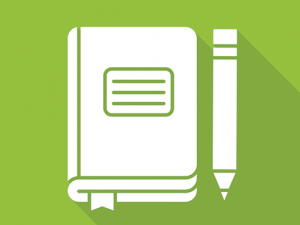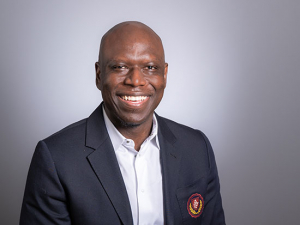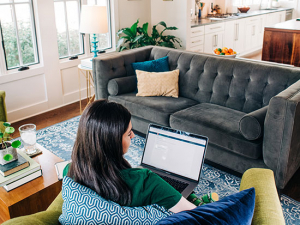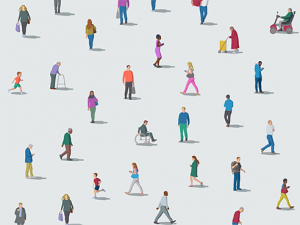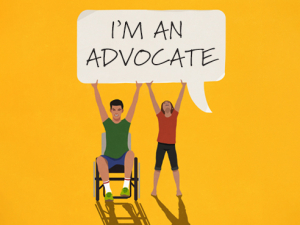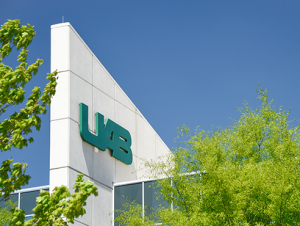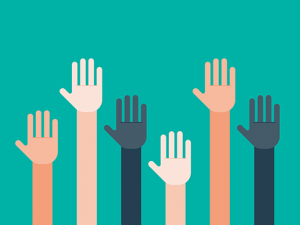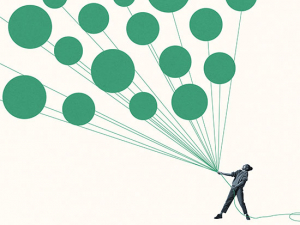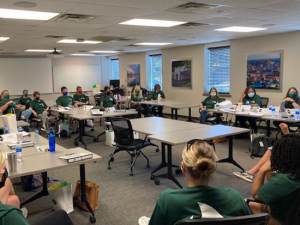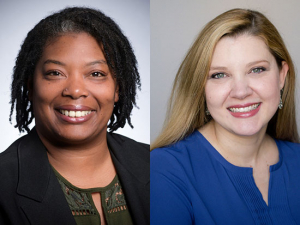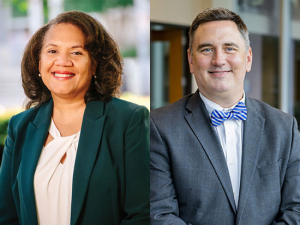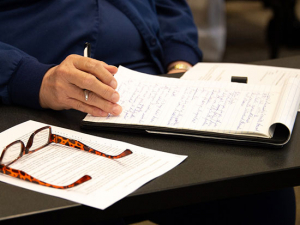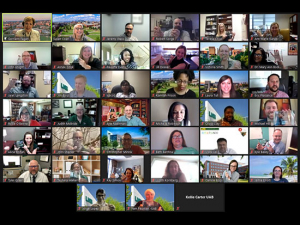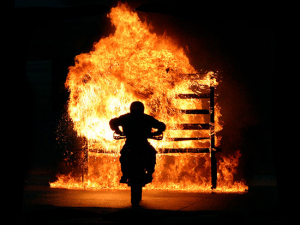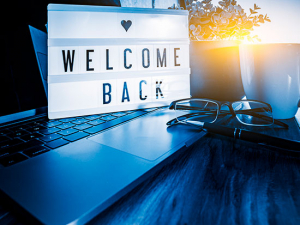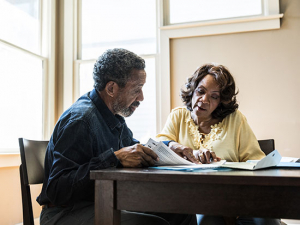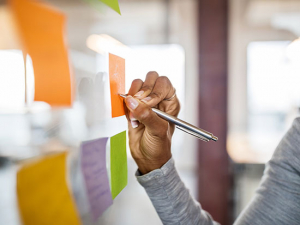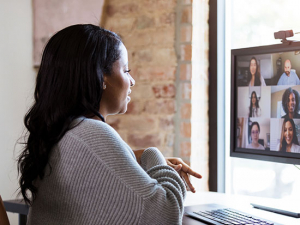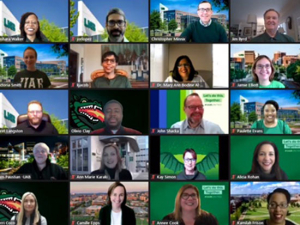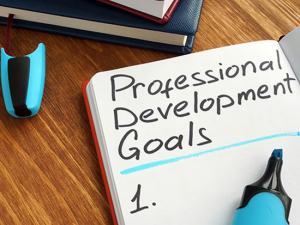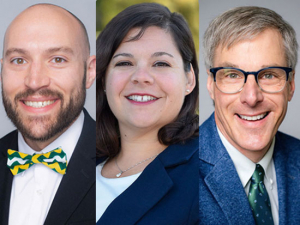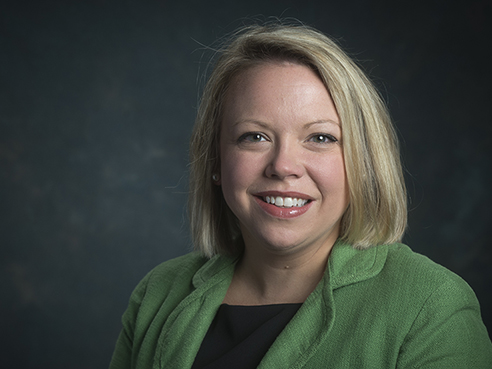 Kristin Johnston Chapleau said the year-long fellowship helped her to refine the service-learning portion of this course in a way that will improve the student experience and learning outcomeKristin Johnston Chapleau, program manager for Clinical and Diagnostic Sciences, is no stranger to service-learning. In 2015, she added a component to courses she teaches for biomedical sciences majors, most of whom plan to pursue careers as health care providers and administrators.
Kristin Johnston Chapleau said the year-long fellowship helped her to refine the service-learning portion of this course in a way that will improve the student experience and learning outcomeKristin Johnston Chapleau, program manager for Clinical and Diagnostic Sciences, is no stranger to service-learning. In 2015, she added a component to courses she teaches for biomedical sciences majors, most of whom plan to pursue careers as health care providers and administrators. The course, Experiencing the University Transition for Health Professions (HRP 101) — a first-year experience — exists to help students understand the implications of the work that lies ahead. Her hope is that service-learning will help “students begin to see past the disease and see their future patients for who they are as individuals,” she said.
Chapleau spent the past year as one of 12 Faculty Fellows in Engaged Scholarship, who worked together to create new service-learning courses or to integrate service-learning into existing courses. The goal is for faculty, students and community partners to collaborate on projects that extend student learning, provide volunteer help for community endeavors and help UAB advance its mission to support and improve the community.
The year-long learning experience, Chapleau said, helped her to refine the service-learning portion of this course in a way that will improve the student experience and learning outcomes.
“I was blessed to be among a group of faculty who brought great insight into how to reach our students in new and innovative ways,” Chapleau said. “A few of the faculty had incorporated service-learning in their courses in the past, but many had not. The time we spent learning and growing together was truly advantageous.”
Building leadership in service
When the class resumes in the fall, Chapleau will incorporate student service-learning fellows into the course who will lead student teams that will connect with and create a service-learning project for a community partner and “apply their classroom experience to community issues in the health professions.”
Two of those partners will be Healing Words and Blazer Kitchen. The Healing Words program, in which volunteers read to patients throughout UAB Hospital, will expose students to the patient care side of health care and enrich their communication skills. (The volunteer group was founded in 2006 by Valerie Gribben, who was earning her undergraduate degree in English from UAB.)
Blazer Kitchen, a food bank that serves UAB employees and students, is ideal for a couple reasons, she said. Food insecurity can have an effect on patient’s health, and students expressed an interest in contributing to an organization or cause that can truly affect their peers.
Entering new territory
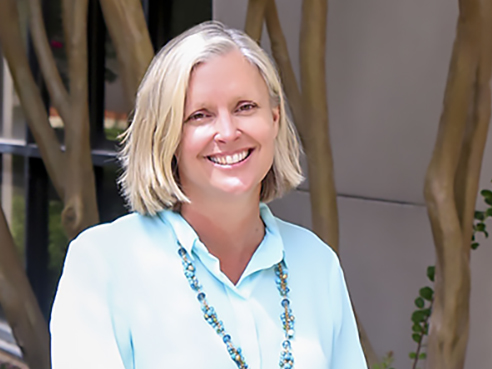 Susan Davies, who has never taught a service-learning course, said the faculty fellows program is an amazing resource. Susan Davies, Ph.D., associate professor of health behavior, steps out of the fellowship into a whole new realm: She has never taught a service-learning course or undergraduate students.
Susan Davies, who has never taught a service-learning course, said the faculty fellows program is an amazing resource. Susan Davies, Ph.D., associate professor of health behavior, steps out of the fellowship into a whole new realm: She has never taught a service-learning course or undergraduate students.“This is a new course, and it will be the first undergraduate course that I’ve taught,” she said. “So I’m excited about it.”
In her health behavior course, which will debut in summer 2018, students will partner with Friends of West End Inc., a 501(c)(3) nonprofit organization established by residents to improve health and well-being of fellow residents and the neighborhood. They will focus on factors in the community that influence mental health and work with local residents and others to support and develop opportunities that help them connect socially and encourage civic engagement.
The past year was a valuable learning experience, said Davies, who also will integrate a service-learning component into a graduate course she teaches every fall, Families, Communities and Health. “The faculty fellows program is an amazing resource. I thought I knew a lot about service-learning until I participated in this program. I learned so much, and I am excited to apply it in the classroom and the community,” Davies said.
More to come
In addition to Chapleau and Davies, the 2016-17 cohort included seven others from UAB, all of whom developed courses:
- Caroline Harada, M.D., associate professor of gerontology/geriatrics/palliative care, created a Health Equity Scholars Program within the School of Medicine to prepare students to care for medically under-served populations.
- Ragib Hasan, Ph.D., assistant professor of computer and information sciences : CS 436: Computer Security
- Jenna LaChenaye, Ph.D., assistant professor of human studies in the School of Education, will direct students to work with a community partner to identify, research and provide a final report addressing a problem in EPR 596: Introduction to Qualitative Research.
- Meena Nabavi, program manager for health care organization and policy the School of Public Health, will help entering freshmen learn about will learn about food insecurity facing the Birmingham area and ways to engage with their community in PUH 101: Transitioning to College, Exploring Public Health.
- Eddie Nabors, instructor for accounting and finance in the Collat School of Business, will direct students to will serve as SaveFirst volunteer tax preparers at community-based sites across Birmingham- Bessemer region in HC 119-2C: Poverty and Human Capability.
- Lourdes Sanchez-Lopez, Ph.D., associate professor of foreign languages and literatures in the College of Arts and Sciences, will require a supervised, practical experience in the workforce or with community agencies, locally or abroad, that provides opportunities to use the language in Spanish 4xx: Spanish for Leadership.
- Abidin Yildirim, Ph.D., assistant professor of electrical and computer engineering, will require hands-on practices in real-life problem-solving in a Nicaraguan hospital in his course, Overseas Engineering Experiences, which will be offered in summer 2018.
UAB is working with Samford University to help establish its service-learning program and three of its faculty also were a part of the class.
Room to grow
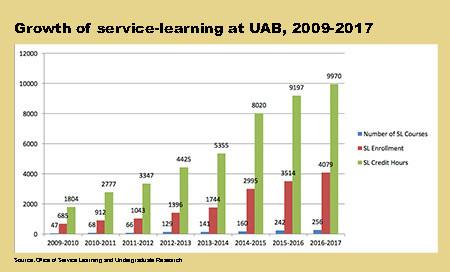 Click to enlarge Amy Badham, who directs the Office of Service Learning and Undergraduate Research, is excited to offer this faculty-development opportunity to all of the academic units on campus.
Click to enlarge Amy Badham, who directs the Office of Service Learning and Undergraduate Research, is excited to offer this faculty-development opportunity to all of the academic units on campus.Service-learning at UAB has grown five-fold in the past seven years. In the 2016-17 academic year, 4,079 students enrolled in 256 courses and generated 9,970 credit hours, up from 685 students in 47 courses and 1,804 credit hours in the 2009-10 academic year, according to data supplied from her office.
Badham attributes the substantial increase in the number of service-learning courses to rising interest in and value of community engagement across UAB’s campus.
“Everyone benefits,” she said. “Community partners who engage in service-learning projects with UAB faculty and students come back for more because they appreciate the relationships and see clear benefits. Faculty from all the schools understand that the experiential nature deepens learning by enabling students to use course content and skills to address real community issues. Students who engage in this work begin to see themselves as global citizens who are responsible for their communities.”
And there’s always room for more, she said.
The faculty fellows program is accepting applications for its next cohort through June 30 for the 2017-18 program year. It is open to all faculty in any department.
|
The faculty fellows program is accepting applications for its next cohort through June 30 for the 2017-18 program year. Learn more and submit an application at uab.edu/servicelearning. |
The fellowship also provides a $1,500 grant to support course development and research and assistance and support to implement it from UAB’s service-learning coordinators.
“This is an exciting year for us because we are also launching the Faculty Fellows in Undergraduate Research and collaborating with eLearning to improve the instructional design of the fellows program creating a blended experience that faculty can then use as a template to design their our own courses,” Badham said.
Learn more and submit an application at uab.edu/servicelearning.


